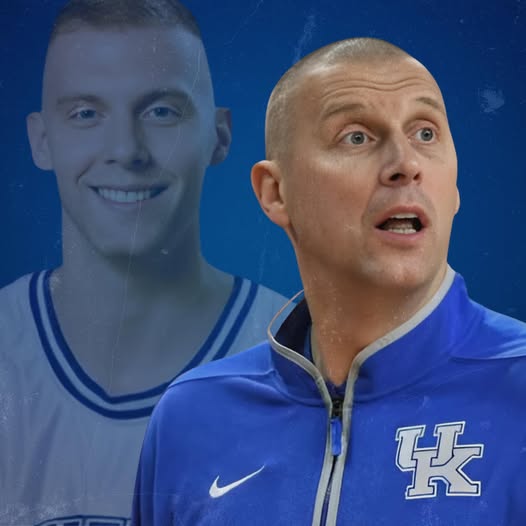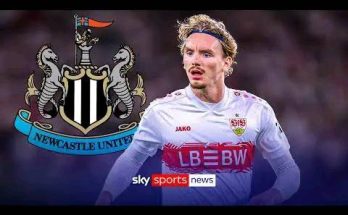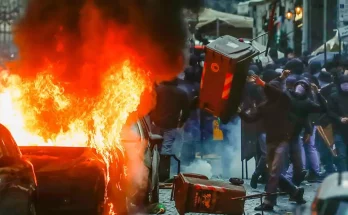Lexington, Kentucky is not just a city—it’s a cathedral of basketball. At the heart of it lies Rupp Arena, a hallowed ground where banners hang like gospel, and expectations loom heavier than a storm cloud. For Mark Pope, a former Kentucky player now taking the reins of one of college basketball’s most storied programs, the challenge is not just to win—but to uphold a legacy shaped by legends. The pressure is immense, the stakes monumental, and yet, Pope has never seemed more at home.
Mark Pope’s journey back to Lexington isn’t just a coaching hire—it’s a narrative arc filled with sentiment, symbolism, and a sincere belief that he can be the man to revive the dominance Big Blue Nation craves. Pope, who played under Rick Pitino and was a captain on the 1996 national championship team, is no stranger to what Kentucky basketball means to the state. Now, nearly three decades later, he returns not as a player but as the architect of its future.
The announcement of Pope’s hiring sent ripples through the college basketball world. It was a move that surprised many outside of Kentucky but resonated deeply within its borders. For the Big Blue faithful, this was more than nostalgia. It was about trust. In Pope, they see a leader who understands the program’s DNA. He’s lived it, bled for it, and now he’s being asked to breathe new life into it.
Taking over for a polarizing figure like John Calipari—who, despite his critics, led Kentucky to a national title and multiple Final Fours—comes with its own set of burdens. Pope doesn’t shy away from that. Instead, he embraces it with the same vigor that defined him as a player. During his introductory press conference, Pope spoke with clarity and conviction: “There’s no place like Kentucky. No pressure like Kentucky. And no opportunity like Kentucky.”
That mindset reflects the confidence of a man who’s walked the walk. Pope built a reputation as a dynamic recruiter and innovative tactician during his time at BYU and Utah Valley. He coached with an edge, turning underdog rosters into tournament-worthy squads, often using pace, perimeter shooting, and unrelenting energy to mask deficiencies in size or talent. But this isn’t BYU. This is Kentucky—where five-star recruits are the norm and championships are not dreams, but expectations.
Still, Pope’s style may be just what the Wildcats need. Under Calipari, Kentucky leaned heavily on elite freshmen, riding the wave of the one-and-done era. That model, while successful for stretches, has lost its grip on dominance in an evolving college basketball landscape. With the transfer portal, NIL deals, and older rosters taking over March Madness, experience and chemistry now matter more than ever. Pope’s coaching philosophy fits that new world order. He blends old-school accountability with modern tempo and spacing. He values toughness and leadership over highlight reels and mixtapes.
His arrival has already begun to reshape the program’s culture. Players are expected to buy in fully, not just to the system, but to the identity of Kentucky basketball—grit, pride, and relentless pursuit of excellence. Pope isn’t interested in empty promises. He wants players who value wearing the jersey as much as winning the game. And fans can feel that shift. There’s a hunger in Lexington, not just for wins, but for belonging. Pope, with his deep roots and forward-thinking vision, gives them both.
Recruiting will be the true litmus test. Pope steps into a gauntlet of blue blood programs, each armed with NIL budgets and brand power. But his early moves suggest he’s not intimidated. In fact, he seems energized. Leveraging Kentucky’s history, facilities, and passionate fanbase, Pope aims to construct a roster that blends NBA-caliber talent with program guys—players who won’t just pass through, but help define an era. That hybrid approach is how modern champions are built.
Perhaps Pope’s biggest advantage is that he understands Kentucky as few others do. He knows the weight of the jersey, the fury of a loss, and the euphoria of winning in front of a packed Rupp. He understands that in Kentucky, basketball isn’t a sport—it’s a way of life. Every practice, every possession, every postgame handshake matters. That’s not pressure. That’s privilege.
The job is not for the faint of heart. Kentucky’s fanbase is famously demanding. A two-game losing streak can feel like a national crisis. Every substitution, every timeout, every word in a press conference is dissected and debated. Pope knows this. He’s lived through it as a player. And he welcomes it as a coach.
But sentiment only carries so far. Results will define Pope’s legacy. And he knows that, too. The SEC is no longer a two-horse race. Programs like Alabama, Auburn, and Tennessee have risen to national prominence. The margin for error is thin, and the road back to a Final Four is treacherous. But Pope’s competitive fire burns bright. He’s not looking to merely restore Kentucky’s past. He wants to build a future that’s even greater.
There’s a buzz around the program that feels new, yet familiar. Practices have intensity. Fans are packing offseason events. The players are speaking about accountability, trust, and purpose. There’s talk of defense-first principles and fluid offensive schemes—of teaching basketball, not just showcasing it. Pope has made clear: this is a program for competitors. For workers. For champions.
Off the court, Pope is also leaning into the evolving realities of college basketball. NIL is not a nuisance to him—it’s a tool. He’s working with Kentucky’s administration and collectives to ensure players are supported, compensated, and connected to the broader Lexington community. For Pope, it’s about creating a holistic experience. A winning culture off the court feeds a winning product on it.
Of course, not everyone is convinced yet. Critics point to his lack of high-major head coaching experience. Others wonder if he can recruit at the level needed to beat Duke, Kansas, and UConn on the trail. But Pope isn’t here to win the press conference. He’s here to win games. And more importantly, he’s here to build something lasting.
His connection to Kentucky’s past gives him a foundation. His innovative approach gives him a future. That intersection of tradition and transformation is what makes this hire so compelling. It’s not just about bringing a former player home. It’s about choosing a leader who understands the stakes, embraces the challenge, and believes that the best is yet to come.
As the new era begins, Pope walks through the Rupp Arena tunnel not just as a former champion, but as a man with something to prove. To himself. To the fans. To the game.
There will be battles ahead—on the court, on the recruiting trail, and in the hearts of a fanbase that has seen it all. But there’s also opportunity. And Mark Pope, with all the weight of history on his shoulders, seems ready to carry it.
Because for him, Kentucky isn’t just a job.
It’s home.
And he’s just getting started.



